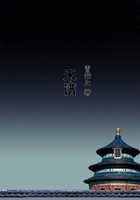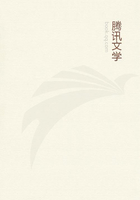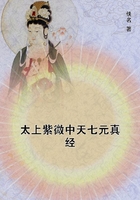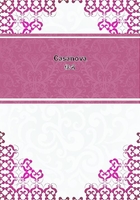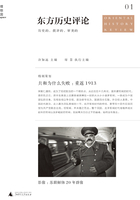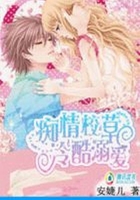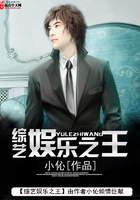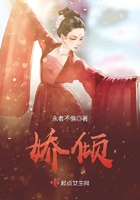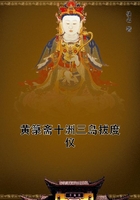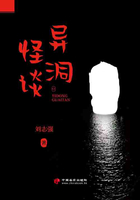"I confess I don't understand the Russians.""Shake hands! Shake hands!" boomed Uncle Aubrey from across the table.
"Neither do I. And I hazard the opinion that they don't themselves."The old gentleman had ruled a large part of the Indian Empire, but he was in the habit of saying that he had rather have written the works of Dickens. The table now took possession of a subject much to its liking. Aunt Eleanor showed premonitory signs of pronouncing an opinion. Although she had blunted her taste upon some form of philanthropy for twenty-five years, she had a fine natural instinct for an upstart or a pretender, and knew to a hairbreadth what literature should be and what it should not be. She was born to the knowledge, and scarcely thought it a matter to be proud of.
"Insanity is not a fit subject for fiction," she announced positively.
"There's the well-known case of Hamlet," Mr. Hilbery interposed, in his leisurely, half-humorous tones.
"Ah, but poetry's different, Trevor," said Aunt Eleanor, as if she had special authority from Shakespeare to say so. "Different altogether.
And I've never thought, for my part, that Hamlet was as mad as they make out. What is your opinion, Mr. Peyton?" For, as there was a minister of literature present in the person of the editor of an esteemed review, she deferred to him.
Mr. Peyton leant a little back in his chair, and, putting his head rather on one side, observed that that was a question that he had never been able to answer entirely to his satisfaction. There was much to be said on both sides, but as he considered upon which side he should say it, Mrs. Hilbery broke in upon his judicious meditations.
"Lovely, lovely Ophelia!" she exclaimed. "What a wonderful power it is--poetry! I wake up in the morning all bedraggled; there's a yellow fog outside; little Emily turns on the electric light when she brings me my tea, and says, 'Oh, ma'am, the water's frozen in the cistern, and cook's cut her finger to the bone.' And then I open a little green book, and the birds are singing, the stars shining, the flowers twinkling--" She looked about her as if these presences had suddenly manifested themselves round her dining-room table.
"Has the cook cut her finger badly?" Aunt Eleanor demanded, addressing herself naturally to Katharine.
"Oh, the cook's finger is only my way of putting it," said Mrs.
Hilbery. "But if she had cut her arm off, Katharine would have sewn it on again," she remarked, with an affectionate glance at her daughter, who looked, she thought, a little sad. "But what horrid, horrid thoughts," she wound up, laying down her napkin and pushing her chair back. "Come, let us find something more cheerful to talk about upstairs."Upstairs in the drawing-room Cassandra found fresh sources of pleasure, first in the distinguished and expectant look of the room, and then in the chance of exercising her divining-rod upon a new assortment of human beings. But the low tones of the women, their meditative silences, the beauty which, to her at least, shone even from black satin and the knobs of amber which encircled elderly necks, changed her wish to chatter to a more subdued desire merely to watch and to whisper. She entered with delight into an atmosphere in which private matters were being interchanged freely, almost in monosyllables, by the older women who now accepted her as one of themselves. Her expression became very gentle and sympathetic, as if she, too, were full of solicitude for the world which was somehow being cared for, managed and deprecated by Aunt Maggie and Aunt Eleanor. After a time she perceived that Katharine was outside the community in some way, and, suddenly, she threw aside her wisdom and gentleness and concern and began to laugh.
"What are you laughing at?" Katharine asked.
A joke so foolish and unfilial wasn't worth explaining.
"It was nothing--ridiculous--in the worst of taste, but still, if you half shut your eyes and looked--" Katharine half shut her eyes and looked, but she looked in the wrong direction, and Cassandra laughed more than ever, and was still laughing and doing her best to explain in a whisper that Aunt Eleanor, through half-shut eyes, was like the parrot in the cage at Stogdon House, when the gentlemen came in and Rodney walked straight up to them and wanted to know what they were laughing at.
"I utterly refuse to tell you!" Cassandra replied, standing up straight, clasping her hands in front of her, and facing him. Her mockery was delicious to him. He had not even for a second the fear that she had been laughing at him. She was laughing because life was so adorable, so enchanting.
"Ah, but you're cruel to make me feel the barbarity of my sex," he replied, drawing his feet together and pressing his finger-tips upon an imaginary opera-hat or malacca cane. "We've been discussing all sorts of dull things, and now I shall never know what I want to know more than anything in the world.""You don't deceive us for a minute!" she cried. "Not for a second. We both know that you've been enjoying yourself immensely. Hasn't he, Katharine?""No," she replied, "I think he's speaking the truth. He doesn't care much for politics."Her words, though spoken simply, produced a curious change in the light, sparkling atmosphere. William at once lost his look of animation and said seriously:
"I detest politics."
"I don't think any man has the right to say that," said Cassandra, almost severely.
"I agree. I mean that I detest politicians," he corrected himself quickly.
"You see, I believe Cassandra is what they call a Feminist," Katharine went on. "Or rather, she was a Feminist six months ago, but it's no good supposing that she is now what she was then. That is one of her greatest charms in my eyes. One never can tell." She smiled at her as an elder sister might smile.
"Katharine, you make one feel so horribly small!" Cassandra exclaimed.

